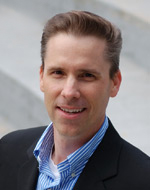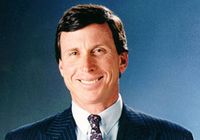 I've been in Garden Grove this week, on the Disneyland side of town, taking in the annual West Coast Symposium of a company you probably never heard of, Liferay Inc.
I've been in Garden Grove this week, on the Disneyland side of town, taking in the annual West Coast Symposium of a company you probably never heard of, Liferay Inc.
Liferay is one of a host of little open source outfits that opened at the start of the last decade. But it never took the VC money, never moved from where it started. It just stuck to its knitting, which it calls “web portals.”
A portal is a general purpose Web site that could be anything. It could be Internet, could be Intranet. It could be a store, or it could be a community, as with Drupal or WordPress. It could be a lot of things, which is why the term Liferay gives to its software is obsolete.
Liferay, the company, is a collection of people who truly believe in open source, as a principle, as well as the software they write. What started out running small sites for non-profits that could not afford to run sites otherwise has grown into a community of 400,000 users, and an “open core” model of enterprise and community software run by everything from moms-and-pops to Hershey's and Merck.
 There have always been such companies, comforting and obscure. I have worked for some. But when Oracle blew up Sun last year Liferay got the chance to become a player. Liferay had been supported by Sun, but when Oracle decided to “go another way,” one of Sun's top open source guns, Paul Hinz, decided it was time for him to jump ship.
There have always been such companies, comforting and obscure. I have worked for some. But when Oracle blew up Sun last year Liferay got the chance to become a player. Liferay had been supported by Sun, but when Oracle decided to “go another way,” one of Sun's top open source guns, Paul Hinz, decided it was time for him to jump ship.
He's now chief marketing officer of Liferay, and determined to prove that the path Sun was going on – the full open source monty – was the path they should have stayed with. The business had always been using software to sell servers, and lower-cost open source software would have sold plenty of servers, he told me. But that's water under the bridge.
Now Hinz is committed to this quirky Orange County start-up and its band of (mostly) young, Chinese-American developers from the LA suburbs who wanted to do their thing without leaving for “the Valley” as so many companies (a-a-a-Appcelerator…excuse me) have done, lured by the bright lights and the big dollars.

Cheung is a deep thinker, who starts his talks hemming and hawing like a Chinese James Stewart, but he really brings his belief system home. Here, for instance, he gave a talk that started out to be about manufacturing, and how the number of jobs in that sector have fallen since China joined the WTO in 2000.
Then he started talking about makers like Ayah Bdeir, who created Little Bits, and Andrew and Ted Sliwinski, who are doing quick prototyping in an abandoned Michigan factory using 3D printing. Then he went on to Adafruit Industries, whose kits can be used for what he termed “social product development” from Quirky.com.
“If you have an ecosystem, a resistant network of inter-connected bodies helping each other, that's better than a monolithic entity.” Which brought us back home to Liferay, and what Oracle tried to do, swallowing whole industries to gain monopoly rents but, in the end, making itself and the whole industry as vulnerable to replacement as Detroit had become a generation ago.
“When one company owns everything, a lot of value gets destroyed,” he concluded. That's a big, obvious truth. And it's the best explanation of the open source ethos, the intellectual oomph behind the movement, on its capacity to reshape America, that I have heard in many years. Bryan Cheung, American hero.

We may soon find out.
The first step in the new direction is Liferay Marketplace, a part of the enterprise edition of the software, Version 6.1, shipping in either December, January, or whenever Chan's team says it's ready. It's going to be a way for people to make, and sell, apps that work within Liferay. Hinz hopes it will make some new millionaires, and accelerate Liferay's success as a software house.
It's pretty cool. All the tools needed to create your own corporate Facebook, or make your own social network, plus an app store whose products can work on mobile devices, not just PCs.
Yeah, that might just get these day dream believers noticed.
May the Force be with them then.










